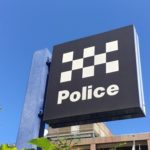Why Some Lawyers Win Cases While Others Waste Your Money

Criminal lawyers are often criticised for adjourning cases from court date to court date, while doing very little in between.
They are accused of ‘dragging cases out’ and having little interest in getting charges dropped at an early stage in the proceedings – after all, lawyers make more if cases go all the way to a defended hearing (in the Local Court) or jury trial (District or Supreme Court).
This is not only bad practice – it is against a lawyer’s duty to act in the client’s best interests, rather than their own financial self-interest.
It can also affect the reputation of the lawyer and law firm; leading to unnecessary costs and delays, less than optimal results, dissatisfied clients, complaints and negative reviews.
But there is a tried and true way of getting criminal cases dropped early – one that many lawyers neglect or ignore due to financial self-interest, inexperience, inadequate specialist knowledge, incompetence, laziness or a combination of these factors.
That way is called ‘representations’.
What are ‘Representations’?
Representations are detailed letters written to the prosecution – whether police or DPP – formally requesting that:
- Cases be dropped altogether,
- Charges be reduced in number,
- Charges be replaced with less serious ones, and/or
- Other important concessions be made.
Representations are normally followed-up with negotiations in person, over the phone, and/or by email or fax.
Case Dropped Altogether
Representations that ask for proceedings to be dropped altogether are also called “no bill applications”.
The most common basis for a no bill application is that the prosecution is unable to prove one or more of the “essential elements” (or ingredients) of a criminal offence.
For example, the offence of ‘fraud’ under section 192E of the Crimes Act 1900 (NSW) requires proof beyond reasonable doubt that:
- A person by any deception, dishonestly;
- Obtained a financial advantage or property, or caused another to suffer a financial disadvantage; and
- The act was done intentionally or recklessly.
If, for instance, there is insufficient proof that the alleged acts were undertaken by “deception” and “dishonestly”, representations can be sent requesting the withdrawal of proceedings on that basis.
Number of Charges Reduced
In cases involving multiple charges of a similar or identical nature, a lawyer can request that all charges be ‘rolled up’ or ‘merged’ into one single charge.
This can often lead to a better outcome for the client, who will be sentenced for a single charge, rather than multiple offences.
It is a tactic often used in fraud cases where there are dozens or hundreds of charges over a long period of time.
Alternatively, rather than merging charges, lawyers may request that several charges be dropped altogether if the client pleads guilty to a single charge.
For example, if there was a protracted assault which involved allegations of several separate acts of assault, a lawyer may offer a plea of guilty to one assault charge provided that the remaining charges are withdrawn.
Severity of Charges Reduced
Representations can also be highly effective in having the severity of charges reduced.
For example, a charge of ‘assault occasioning actual bodily harm’ (5 year maximum penalty) can often be reduced to ‘common assault’ (2 year maximum) if representations are written pointing out that the injuries inflicted were “transient or trifling”; rather than serious in nature.
Assault charges are often accompanied by a charge of ‘affray’; which carries a maximum penalty of 10 years in prison. Representations can request the withdrawal of that charge provided that the defendant pleads guilty to a less-serious charge, such as ‘common assault’.
Where a person is charged with ‘drug supply’, a good lawyer can often have the charge reduced to ‘drug possession’ – which is far less serious (2 years imprisonment and remains in the Local Court). This is often done where the client is charged with ‘deemed supply’; which is where they possessed more than the ‘trafficable quantity’ of drugs, rather than there being any evidence of actual supply.
Another example is ‘drink driving’ (“PCA”) cases. Take the common scenario where a person has been charged with high-range drink driving after quickly consuming several alcoholic beverages shortly before driving. Many people are unaware that their blood alcohol concentration (“BAC”) gradually increases for an hour or more after consuming alcohol. This can mean that their BAC while driving was actually lower than when later breathalysed at the police station.
In these cases, a lawyer can obtain a pharmacological report to confirm that the person’s BAC was likely to have been lower at the time of driving – which can, for instance, result in a high-range PCA charge being reduced to mid-range PCA through effective representations.
Other Concessions
In addition to getting charges reduced in number and/or severity, a good lawyer will often be able to secure a range of other concessions, including:
- Keeping the case in the Local court, rather than having it referred to the District Court where the penalties are usually higher,
- Amending the ‘agreed facts’ to make the offence appear less serious, and/or
- That any plea of guilty was entered at an early stage.
Keeping case in the Local Court
In many cases, the prosecution can elect (choose) to take a case to a higher court such as the District Court.
For state charges, these cases are called Table 1 and Table 2 offences – and include all charges which carry a maximum penalty of more than 2 years imprisonment; such as assault occasioning actual bodily harm, fraud, larceny (stealing), indecent assault and many others.
In these matters, and also in many Commonwealth cases, a good lawyer may be able to persuade the prosecution to keep the case in the Local Court, where the maximum penalty for any single offence is 2 years imprisonment.
Amending the agreed facts
If a person pleads guilty to an offence, the Magistrate or Judge will read the ‘agreed facts’ before imposing a penalty. That document contains the specific allegations against the defendant, and is a very important sentencing consideration.
A good criminal lawyer will be able to persuade the prosecution to amend parts of the ‘agreed facts’ so that that offence is considered to be less serious.
For example, they may be able to change parts like “the accused punched the victim several times to the face causing severe pain” to simply “the accused then punched the victim”, or delete reference to any injuries suffered in cases where the lawyer is seeking to have a charge downgraded eg from ‘assault occasioning actual bodily harm’ to ‘common assault’.
Alternatively or additionally, a lawyer can convince the prosecution to include phrases that are helpful to the defence, such as “The accused immediately went to the aid of the victim and called for medical assistance. He was remorseful and has offered to pay the accused’s medical costs”.
In addition, a good lawyer will be able to get rid of irrelevant or unfairly prejudicial information, such as “The accused is a known drug dealer” (in a drug case) or “Police have attended the home on several previous occasions” (in domestic assault cases).
Such concessions can make a huge difference to the end result.
Conceding that the plea of guilty was entered ‘early’
Those who plead guilty to criminal offences at the earliest opportunity (eg on the first court date) are entitled to a 25% discount on sentencing.
This can lead to a reduction in the length of sentence (eg reducing 12 months prison to 9 months) or the type of sentence imposed (eg the imposition of a ‘suspended sentence’ or ‘community service’ rather than full time prison).
A lawyer who is successful in negotiating a reduction in the number and/or type of charges will often seek an agreement from the prosecution not to argue against a full 25% sentencing discount, even if it took some time to negotiate the charges and the guilty plea was not entered on the very first court date.
Form of Representations
Representations come in many shapes and sizes – they can be shorter for less serious and straightforward cases, and lengthier for more serious and complex cases. For very serious matters, effective representations can be upwards of 80 pages!
Detailed and well-structured representations can consist of many parts, including:
- An outline of the charges and relevant sections of legislation;
- An outline of the police facts and allegations against the person;
- The applicable law, essential elements of the offence, and relevant authorities;
- An analysis of the prosecution evidence;
- An analysis of how the prosecution policies and guidelines apply to that particular case; and
- Defence submissions and arguments based on the admissible evidence available.
Getting your Legal Costs Back
Going to court can be an incredibly expensive and stressful – especially when that person knows they are innocent.
Even if representations are refused by the prosecution, a good lawyer will be able to make an application for costs if the matter gets thrown out of court later down the track. If granted, this will entitle the defendant to the reimbursement of some or all of their legal costs.
A good lawyer will foreshadow a costs application within their representations, and that document can be handed up in court to support the cost application.
Mandatory Defence Disclosures
A good defence lawyer will always be mindful of the information conveyed to the prosecution, and will often keep certain matters ‘up their sleeves’.
But disclosing a defence in broad terms through representations is not generally a strategic risk these days, because the Criminal Procedure Act now requires the defence to disclose the nature of any defence that it intends to rely upon prior to trial. In addition, the parties are required in many cases to participate in pre-trial conferences to discuss the issues at trial with a view to resolving the matter.
In practice, the prosecution will be well-aware of deficiencies and inconsistencies in its case – and writing representations lets them know that you are aware of their weaknesses and will be fighting tooth and nail, rather than throwing in the towel.
This frequently leads to the withdrawal of cases or reductions in charges.
What Should I Do?
If you are looking for the best possible result in the shortest space of time, make sure that your lawyer is prepared to fight for the withdrawal or reduction of charges rather than sit on their hands and adjourn your case from court date to court date in order to get their ‘pot of gold’ once it reaches a ‘defended hearing’ or ‘jury trial’.
See a number of lawyers, ask how they propose to get your case dropped /reduced, keep tabs on what they’re doing by asking for regular updates and itemised bills of costs, and ensure you get a copy of the representations they send, and information about follow-up meetings and discussions.
Be aware of unscrupulous defence practices such as ‘reading and pleading’ – which is where lawyers advise their clients to plead not guilty, neglect to write effective representations, do very little to prepare, and then advise the client to plead guilty on the first day of the hearing or trial. By doing this, the lawyer gets the fee for preparation and hearing costs while doing very little work.
There are many ethical and hardworking criminal lawyers out there, but like all professions and trades, there are also some who see short term financial benefits as their primary goal.
Choose one that you feel will act in your best interests, rather than their own.






